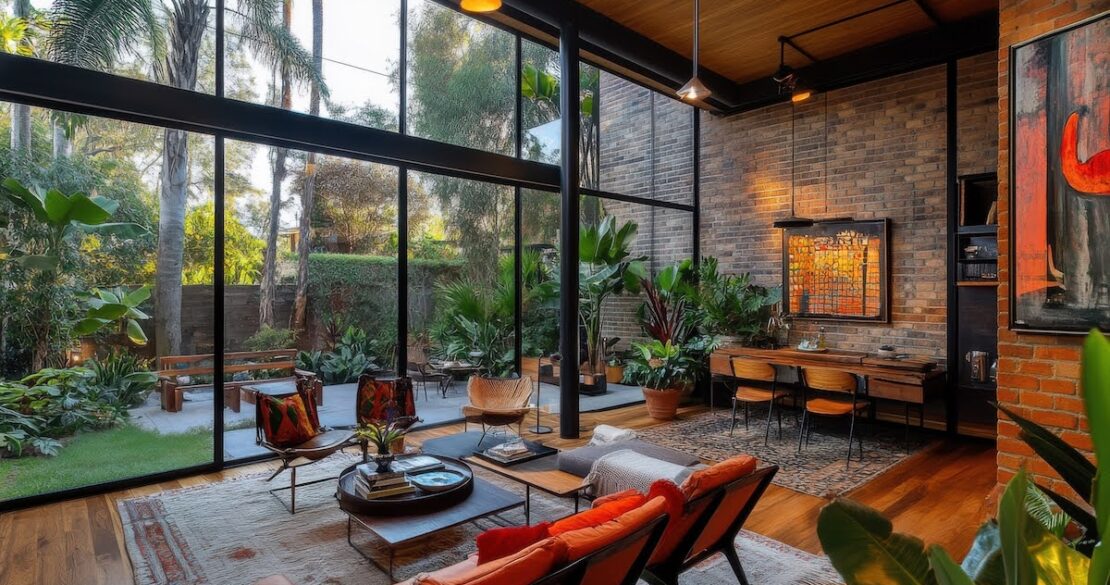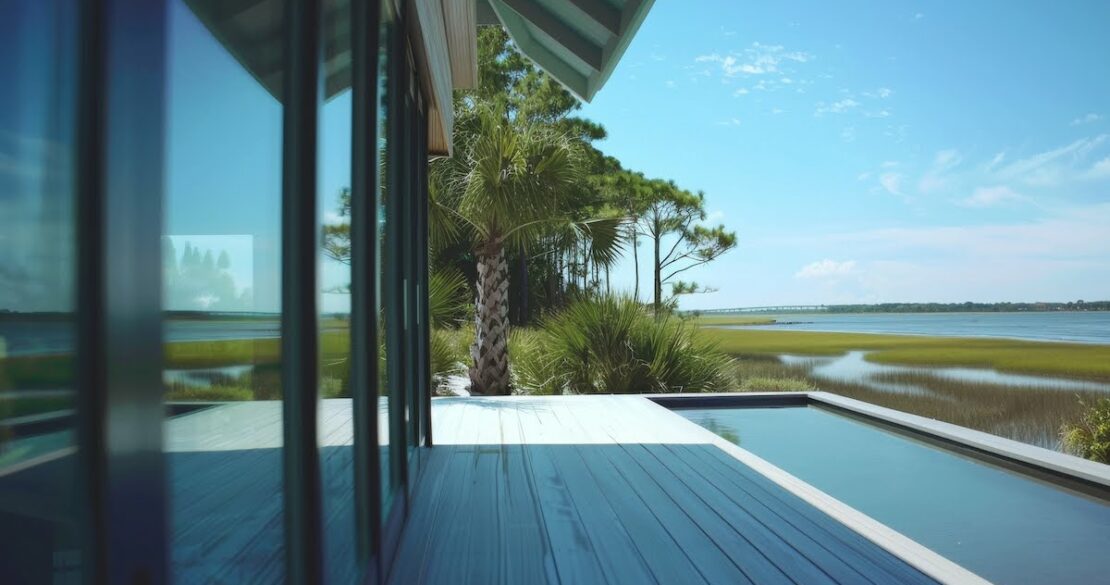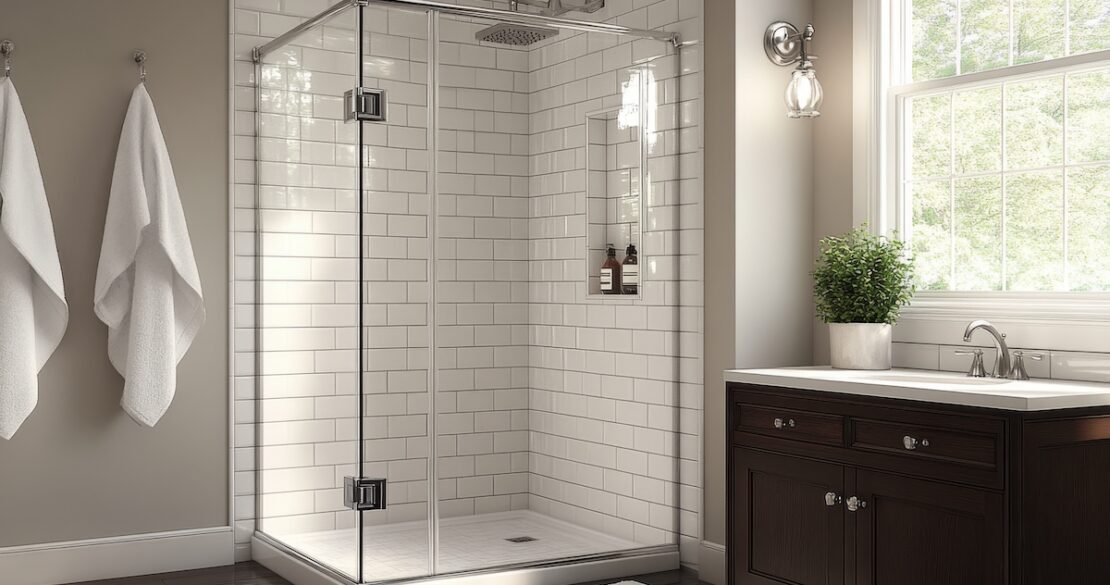Choosing the right windows for your home or business isn’t just about aesthetics—it’s about energy efficiency, comfort, and reducing your environmental footprint.
Climate-smart glass, also known as energy-efficient windows, can drastically lower your energy bills, improve indoor comfort, and boost the overall value of your property.
Whether you’re building a new space or upgrading existing windows, this guide will help you navigate the world of climate-smart glass and make the right choice for your needs.
Want to know more about how glass can transform your space? Check out our custom glass services for a deeper dive into possibilities.
The History of Climate Smart Glass
Energy-efficient windows have come a long way.
From early double-pane designs in the mid-20th century to today’s advanced technologies like electrochromic smart glass, the goal has always been the same: improve insulation, reduce heat transfer, and keep buildings comfortable year-round.
Innovations like low-emissivity (Low-E) coatings and gas-filled panes have made climate-smart glass more effective than ever before.
Fun Fact: The development of Low-E glass coatings in the 1970s was a game-changer, and today, it’s a key feature in energy-efficient windows.
How to Choose Climate-Smart Glass: Key Tips
1. Know Your Climate
Different climates call for different glass types.
Whether you’re battling the cold winters of Maine or the hot summers of Arizona, climate-smart glass can be tailored to your region’s specific needs.
For Cold Climates:
- Choose windows with a low U-factor to minimize heat loss.
- Opt for triple-pane windows with gas fills like argon or krypton to improve insulation.
- Look for windows with Low-E coatings to reflect heat back into your home.
For Hot Climates:
- Prioritize a low Solar Heat Gain Coefficient (SHGC) to keep the sun’s heat out.
- Low-E coatings are a must—they reduce the amount of heat entering your home.
- Double-pane windows with argon gas fill are ideal for insulating against outdoor heat.
For Mixed Climates:
- Look for a balance between a low U-factor and a low SHGC.
- Smart glass technologies that adjust to temperature changes can be a great investment.
Quick Tip: Unsure about the best glass for your home? Consult with experts from Atlantic Glass for personalized advice.
2. Types of Climate-Smart Glass
| Glass Type | Best For | Key Benefits |
|---|---|---|
| Low-E Glass | All Climates | Reduces heat transfer, improves efficiency |
| Gas-Filled Windows | Cold Climates | Enhances insulation, minimizes heat loss |
| Electrochromic Smart Glass | Mixed Climates | Automatically tints based on sunlight, reducing energy consumption |
| Triple-Pane Windows | Extreme Climates | Maximum insulation, reduces noise, and enhances energy efficiency |
3. Look for Energy Performance Ratings
Understanding the ratings is crucial to making the best decision.
Here’s a breakdown of what to look for:
- U-factor: Measures how well the window prevents heat from escaping. Lower numbers are better for colder climates.
- Solar Heat Gain Coefficient (SHGC): This measures how much solar radiation the window allows in. Lower numbers are better for hot climates.
- Visible Transmittance (VT): The amount of light that passes through the window. Higher numbers mean more natural light enters your space.
Use the National Fenestration Rating Council’s label to compare different products.
Smart Glass Technologies
Smart glass takes energy efficiency to a whole new level.
These advanced windows automatically adjust their tint to optimize indoor temperatures and lighting conditions.
Benefits of Smart Glass:
- Reduces a building’s energy needs by about 20%.
- Minimizes the need for blinds or curtains.
- Improves comfort by controlling glare and UV exposure.
Smart glass is ideal for offices and homes in climates with varying temperatures.
Learn more about how smart glass could work for you in our custom glass page.
Frame Materials Matter
The frame you choose also impacts the performance of your climate-smart glass.
Here are some popular options:
- Vinyl: Affordable and low-maintenance, vinyl frames are great for hot and rainy climates as they resist moisture and UV damage.
- Composite: Composite frames don’t expand and contract as much with temperature changes, making them ideal for cold climates.
- Fiberglass: Known for its durability and insulation properties, fiberglass frames are a good fit for nearly any climate.
For more details, check out our article on glass replacement and repair.
Common Questions About Climate-Smart Glass
1. Do energy-efficient windows really make a difference?
Absolutely! Properly installed energy-efficient windows can cut your heating and cooling bills by up to 20%. They also reduce drafts and hot spots, making your home more comfortable year-round.
2. How long do energy-efficient windows last?
High-quality climate-smart glass can last up to 20 years or more with proper maintenance. Be sure to check for any signs of wear, such as condensation between panes, which could indicate a seal failure.
3. Can I install climate-smart glass myself?
While DIY installation might seem tempting, it’s crucial that energy-efficient windows are installed by a professional. Improper installation can void warranties and reduce the energy-saving benefits. Learn more about the importance of professional installation here.
Installation and Maintenance Tips
Installing and maintaining your climate-smart glass properly is key to long-term energy savings.
Installation Tips:
- Make sure windows are level and sealed tightly.
- Install by a certified professional to ensure energy ratings are accurate.
- Inspect window frames for air leaks and seal them if necessary.
Maintenance Tips:
- Clean glass with non-abrasive solutions to maintain clarity.
- Regularly check window seals for signs of wear or moisture.
- Reapply weatherstripping as needed to keep windows energy-efficient.
Check out our detailed guide on window maintenance to keep your windows in top shape.
Next Steps
Selecting the right climate-smart glass for your home or office is an investment that pays off in comfort, reduced energy bills, and sustainability.
By choosing the right glass type, understanding energy ratings, and ensuring proper installation, you can maximize the benefits of these modern windows.
Ready to upgrade your windows? Explore our custom glass services or contact Atlantic Glass for a consultation.





